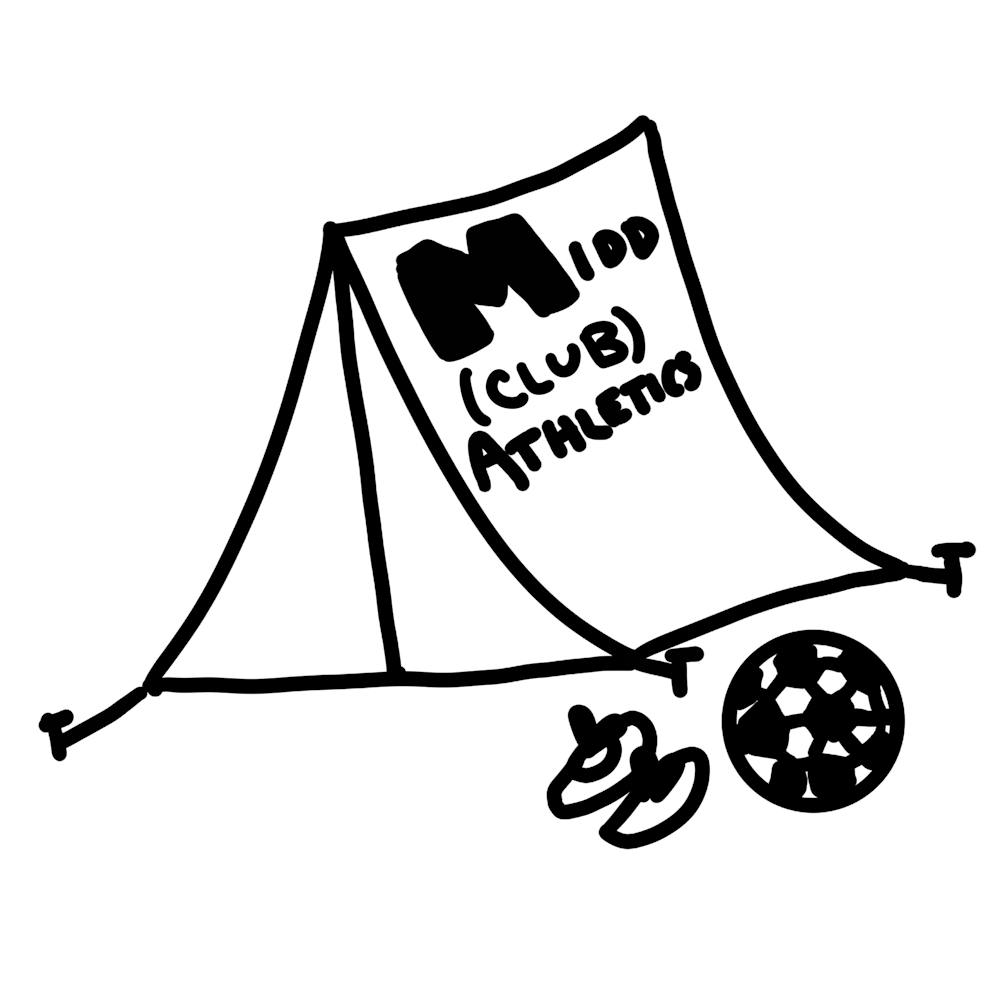Club sports at Middlebury have rapidly increased in popularity among students in recent years, but many of their leaders say that the administration and the Student Government Association (SGA) have not given them the budget necessary to maintain safe and competitive teams.
Student organizations, including club sports, submit an annual budget proposal to the SGA Finance Committee (SGAFC) and then receive some or all of their requested funding in their operating account. Any money spent beyond the SGAFC award must be covered with funds from the club’s gift account, a separate pool of money accumulated through organization fundraising and alumni donations, or the club’s treasurer will be held personally responsible for any unpaid debt.
For some club teams, the SGAFC budget process did not leave them with adequate funds. Men’s ultimate frisbee said that, despite their request this year for a $16,000 budget, SGAFC only provided them with $10,500 this fall. The club crew team said that they were given $33,000 last year instead of their normally approved budget of $45,000. Due to insufficient budget funds, teams like ultimate frisbee, rugby and crew have faced challenges in buying necessary equipment, paying for transportation and attending competitions. Often the lack of funds means that the teams must rely on old equipment, use student-drivers for transportation or even reduce the number of people they can send to competitions.
Covid-19 policies have added to the financial stress, as the school requires club sports to stay in hotel rooms during off-campus travel, but SGAFC policies do not allow student organizations to use their budgets to fund lodging. The SGAFC handbook explains that, “Due to their extensive costs per student, the SGAFC is unable to fund requests for hotels or flights and no allocated funds may be used towards paying for flights or hotels.”
Lucie Rochat ’22, captain of the Middlebury Sailing Club, said the Student Activities Office (SAO) suggested that the sailing club save money by camping overnight at their regatta. Rochat was disappointed in how the school had disregarded their concerns and forced the hotel expense onto club sports when they had no real way to pay for it.
The club crew team has experienced similar financial obstacles.
“Almost everyone we’re racing is a fully funded varsity team,” Alden Harring ’22, captain of the women’s crew team, said.
“You roll up to a regatta, and we’ve just bleary-eyed gotten off a bus because we couldn’t afford hotels. And here’s your competition, who rolled out of bed 20 minutes ago with eight hours of sleep. And then it’s like, we’ve already lost,” she said.
Middlebury has set up club sports so that they are student-led, but Harring said that it feels like the school often does not value club sports like its other athletic programs and places too much responsibility on students.
The crew captains, according to Harring, are responsible for organizing daily travel to Lake Dunmore for 75 rowers as well as transportation and lodging at regular competitions. They have been forced to reconsider the number of athletes they can send to compete because of funding restrictions.
A recent sports fundraiser, the “I’m Proud to Be a Panther Challenge” — which ended on Oct.14 of this year — raised $403,613 for athletic programs from 1,952 donors and, for the first time, included club sports as donation recipients.
“This is the first year that we’ve been allowed to participate in it, and it was really, really helpful because we probably raised enough money to cover our expenses for nationals,” said Raechel Zeller ’22, co-captain of the women’s side of The Pranksters, the ultimate frisbee team on campus. The men’s and women’s ultimate frisbee teams raised a collective $15,700 from the challenge, the most of any club sport. Men’s varsity lacrosse raised the most of any group with $48,385, followed by the football program with $44,011.
Leo Sovell-Fernandez ’22, co-captain of the men’s ultimate frisbee team, said that his primary concern is not the amount of funding allocated by the SGA or in the gift account. He said the Pranksters will likely be able to rely on new money requests and generous alumni this year. Sovell-Fernandez said that the problem for his team is that funding is a barrier to accessing sports medicine and athletic trainers.
“We were told that we needed to have an endowment to fund a trainer and support that additional staff member,” Sovell-Fernandez said. “[The administration] gave us a figure of around a million dollars to raise and provide to have our own trainer.”
He said one seriously injured player struggles at Middlebury because of the lack of access to a sports medicine professional.
According to Sovell-Fernandez, at a recent competition at Cornell, this player, who was already injured, was able to receive medical care at the university. The team described their player’s situation to a Cornell athlete, who offered his student ID and said the Middlebury student could go to the athletic center, swipe in with an ID and get any personalized treatment like any Cornell student.
“And so this player did and got their injury looked at by an in-person person for this first time since leaving home this summer,” said Sovell-Fernandez “Which was really frustrating, to show up at a different school and to be able to get access to the resources we needed.”
Many club leaders had ideas for the school to change their policies to ensure that club sports become a more safe and accessible activity for students. Isabelle Gorrivan ’22, captain of men’s crew, said that the team has fundraised by taking shifts at Midd Xpress or delivering papers for The Campus. Earnings from this work go toward financial aid for team members who cannot afford club dues or the annual training trip.
As teams recruit many new members, they face the challenge of including an increasing number of athletes who do not have the ability to pay club dues and buy equipment.
“We all want to help with fundraising because we know that it increases accessibility to the team,” said Gorrivan. “But if we have limited coaching staff, limited boats, then we can’t get everyone out there. How are you supposed to increase the accessibility if there’s a limit as to how many people you can safely have on the water?”
Sovell-Fernandez said that the men’s frisbee team had previously requested 45 minutes a week for the club to meet with an athletic trainer, but they have not yet been given any access.
According to Rochat, club sailing cannot meet their needs through fundraising and needs SGAFC to approve their full budget requests if they are to repair their gear and renovate their facilities.
“There’s such a frustrating breakdown between what we are capable of and what we are funded to do,” Harring said.

Ryan McElroy '25 (he/him) is the Editor in Chief.
Ryan has previously served as a Managing Editor, News Editor and Staff Writer. He is majoring in history with a minor in art history. Outside of The Campus, he is co-captain of Middlebury Mock Trial and previously worked as Head Advising Fellow for Matriculate and a research assistant in the History department. Last summer Ryan interned as a global risk analyst at a bank in Charlotte, North Carolina.



